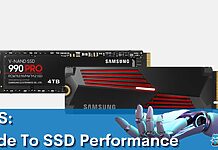You’ve probably encountered the “80 Plus” certification when purchasing a power supply unit. Have you ever wondered what it means? And why does it matter? If not, let me explain the 80+ certification and whether you should only consider it to get a suitable PSU.
Key Takeaways
- 80+ certification is a voluntary standard for PSUs, indicating their efficiency in converting AC power to DC power.
- The PSUs having 80 Plus are supposed to have 80% or more efficiency at load percentages of 20%, 50%, and 100%.
- 80 Plus certification is not the best unit to measure because it uses some unrealistic or insufficient parameters for the power supply units.
What Is The 80+ Certification?
80+ certification is a voluntary standard for PSUs, indicating their efficiency in converting AC power to DC power[1]. The more efficient a PSU, the less energy it wastes in the form of heat. Wasting less heat leads to lower electricity bills and a reduced environmental impact.[2]
80+ Certification Levels
| Certification Levels | Efficiency @ 20% Load | Efficiency @ 50% Load | Efficiency @ 100% Load |
|---|---|---|---|
| 80 Plus | 80% | 80% | 80% |
| 80 Plus Bronze | 82% | 85% | 82% |
| 80 Plus Silver | 85% | 88% | 85% |
| 80 Plus Gold | 87% | 90% | 87% |
| 80 Plus Platinum | 90% | 92% | 89% |
| 80 Plus Titanium | 92% | 94% | 90% |
Is The 80 Plus Best Unit To Measure PSU Efficiency?
The simple answer is No. 80 Plus is a helpful indicator. However, it is not the sole determinant of a good-quality PSU. Proper evaluation of PSU performance, reliability, and suitability for your gaming rig involves other testing parameters. Here are some essential things to consider besides 80 Plus.
- Build Quality: High-quality PSU components and construction ensure the reliability and longevity of the hardware[3]. Choosing a PSU with a higher build quality is crucial in the selection process.
- Voltage Ripple: Sometimes, fluctuations in output voltage can introduce electrical noise into your system, causing voltage ripple. This can degrade your system’s overall stability and performance[4].
- Voltage Regulation: It is essential to consider how well a PSU maintains stable output voltage under different loads. Poor voltage regulation can lead to crashes and even hardware damage[5].
- Over Power & Current Protection: OPP and OCP are safety features that shut down the PSU if it detects an overloaded power or current conditions. It ensures that the rig is safeguarded from potential harm.
- Over Temperature Protection: This mechanism monitors the PSU’s internal temperature and shuts down if it exceeds safe operating limits, preventing overheating.
- Transient Response: It measures how quickly a PSU can adjust its output voltage to compensate for sudden changes, especially in modern, more power-hungry PSUs.
These parameters are essential and can’t be overstated. Moreover, these features and parameters provide an extra layer of protection. Also, they increase the longevity and stability of your PC.
Helpful Resources By Tech4Gamers:
References:
- 80 PLUS certification specifications and ratings | CLEAResult. (n.d.). https://www.clearesult.com/80plus/program-details#program-details-table
- Efficient Power Supplies. (n.d.). Efficient Power Supplies. https://www.efficientpowersupplies.org/
- Hosting, I. (2024, January 22). PSUs: Understanding Computer Power Supply Units. InMotion Hosting Blog. https://www.inmotionhosting.com/blog/power-supply-units/
- Power Supply Voltage: Topics by WorldWideScience.org. (n.d.). https://worldwidescience.org/topicpages/p/power+supply+voltage.html
- G. (2024, February 26). Voltage Regulator Module. GeeksforGeeks. https://www.geeksforgeeks.org/voltage-regulator-module/
Frequently Asked Questions
80+ certification is a voluntary standard for PSUs, indicating their efficiency in converting AC power to DC power.
The only requirement for 80 Plus certification is that the PSU should be at least 80% energy efficient at 20, 50, and 100 percent rated load.
A PSU is called 80 bronze certified if this efficiency is at least 82% at 20% load, 85% at 50%, and 82% at 100% load. It’s an entry-level certification.
Thank you! Please share your positive feedback. 🔋
How could we improve this post? Please Help us. 😔
[Errors Troubleshooting Expert]
Arsalan Shakil (aka GuyThatDoesEverything on YouTube) is a PC Tech Enthusiast and Electronic Geek. With over 10+ years of experience in Electronics, he then decided to explore Software Engineering to design embedded products and automate existing hardware solutions.
When he started tearing down old cameras to understand how they worked, he was shocked (literally, when he got zapped by a flash discharge capacitor), giving him the power (debatable) to fall in love with videography/photography. He also started making some fun videos that later became YouTube tech reviews.
Skills:
- 10+ years of experience in Electronics design, embedded solutions, and prototyping
- Majored in Software Engineering
- Research paper publication in IEEE for Embedded Military Uniform & LoRa WAN wireless technology
- Specialized in IoT Solutions
- PC Enthusiast & PC Modder
In his local region, he’s known to expose cheap PSU brands, often claiming fake certification or false claims on the box. He’s a true nerd and needed some friends in his life. Then he met some guys who work at Tech4Gamers, and they also came out to be equal nerds who suggested he join Tech4Gamers as a Hardware Expert.


 Threads
Threads![AMD EXPO [Features & How You Can Enable It]](https://tech4gamers.com/wp-content/uploads/2024/08/CORSAIR-VENGEANCE-RGB-DDR5-RAM-32GB-2x16GB-6000MHz-CL30-AMD-EXPO-RGB-Lighting-3-218x150.jpg)



